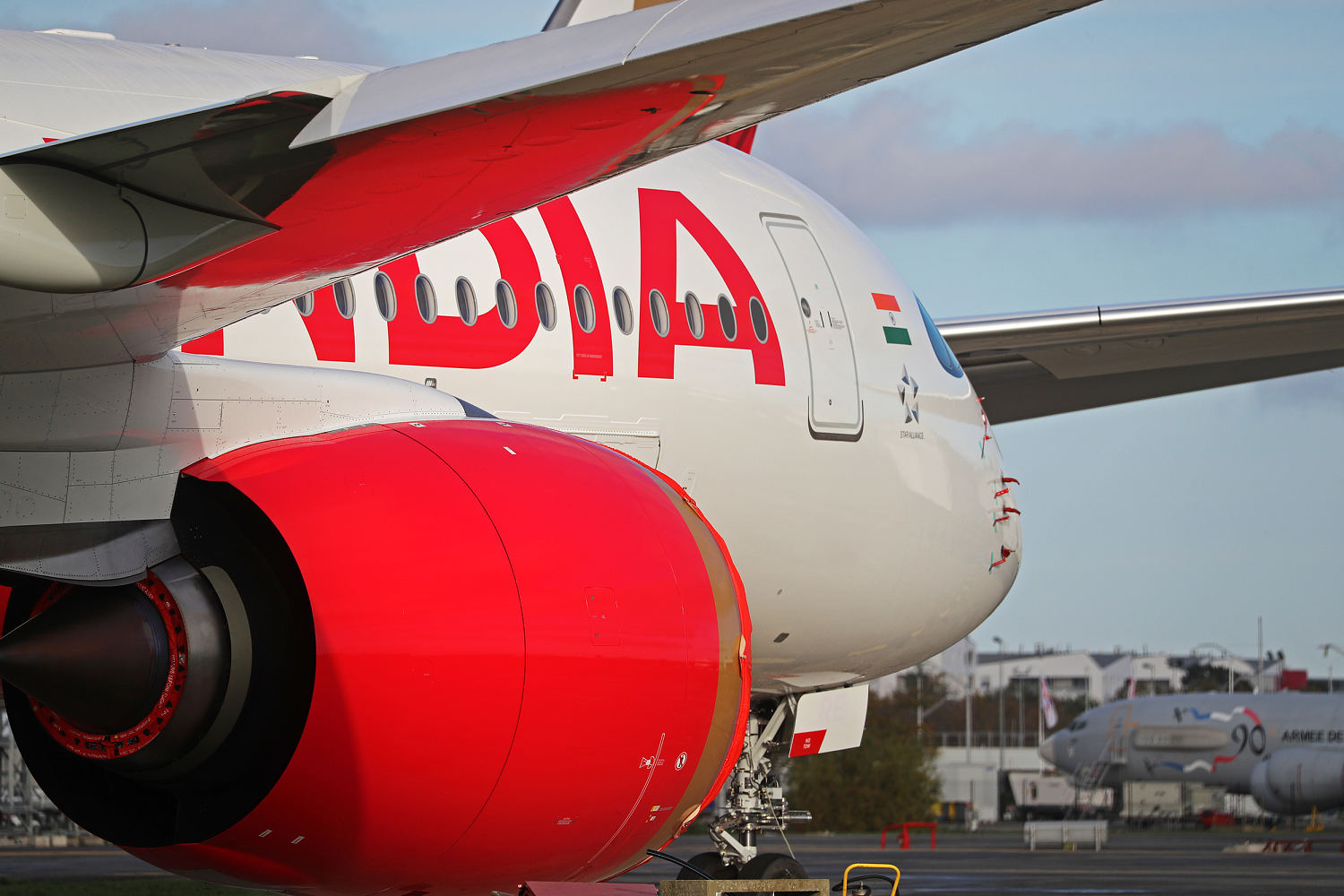[ad_1]

NEW DELHI — India has vowed to punish those responsible for hoax bomb threats that disrupted dozens of flights in recent days, resulting in huge financial losses for airlines and hours of delays for passengers whose flights were sometimes escorted by fighter jets.
More than 90 flights from Indian airports have received bomb threats in just over a week, including about 50 on Saturday and Sunday alone, according to local media reports. Though they were mainly directed at airlines based in India, they also affected international airlines and included both domestic flights as well as flights to the United States and other overseas destinations.
The unprecedented scale of the false threats, most of which were made on social media platforms such as X, has sent regulators scrambling for solutions.
“Safety and security is the foremost aspect,” the Indian aviation minister, Kinjarapu Ram Mohan Naidu, told reporters Monday, adding that authorities are considering putting perpetrators on a no-fly list. “Even (if) one plane gets diverted, it’s not what we want.”
But it remains largely unclear who was behind the threats and what the motive was. Authorities said they had made one arrest but dismissed the possibility of a larger conspiracy.
Anyone found guilty of making such threats could end up serving jail time, Kinjarapu said.
“We are making it a cognizable offense, so based on that amendment, there is going to be a punishment and also fine,” he said.
Bomb threats against airlines are taken especially seriously in India, which was rattled by a series of bombings and hijackings from the 1970s to 1990s. The 1999 hijacking of Indian Airlines Flight 814 while en route from Kathmandu, Nepal, to Delhi lasted eight days and resulted in the release of several terrorists in Indian custody in exchange for the passengers and crew members, who by then were being held in Afghanistan.
In 1985, the bombing of Air India Flight 182 while en route from Toronto to New Delhi killed all 329 people on board in the worst terrorist attack in Canadian history. (On Monday, two men pleaded guilty to second-degree murder in a Canadian court in the 2022 shooting death of Ripudaman Singh Malik, a Canadian Sikh businessman who was acquitted of the bombing in 2005.)
Airlines are required by regulators to act on every seemingly credible threat.
“Though all have subsequently been found to be hoaxes, as a responsible airline operator all threats are taken seriously,” Air India, the country’s flagship carrier, said in a statement.
On Oct. 14, an Air India flight bound for New York was diverted shortly after takeoff from Mumbai, India’s financial capital, after it received a bomb threat, making an emergency landing in Delhi.
The next day, Singapore’s military dispatched two fighter jets to escort an Air India Express flight bound for the Southeast Asian city-state after it received an email threat. Two days later, the British air force dispatched a fighter jet to intercept an Air India Boeing 777 en route to London.
Another Air India flight from Delhi to Chicago was diverted to the remote Canadian city of Iqaluit last week after a security threat was posted online. The more than 200 passengers and crew members were stranded at the airport there for 18 hours before continuing on to Chicago on a Canadian air force plane.
Air India said it would consider legal action against those responsible and was cooperating with the authorities to identify the perpetrators.
Police in Mumbai have arrested one person on suspicion of posting bomb threats against at least three flights, Kinjarapu said Wednesday in a post on X. He did not name the suspect, who is a minor.
Experts say such hoaxes can have an enormous impact on airlines.
“Whenever the threat comes in, it has to land at the nearest airport,” said Sidharath Kapur, an independent aviation expert.
Passengers are deboarded while the plane is checked for explosives, he said, and it is allowed to take off again only once the threat is confirmed to be a hoax.
“It’s a fairly long process,” he said.
It isn’t always possible for the plane to land immediately.
“If a flight has just taken off and there is a bomb threat, the flight can’t land because it is already on a full load of fuel,” he said. “So they will have to dump the fuel first in the air and then land.”
This process can have a “cascading effect” on the airline’s entire network, he said, further disrupting schedules as spare planes and crew members are dispatched to assist the flight that was threatened.
“The financial impact on the airline is also pretty severe,” he said. “There’s costs of dumping the fuel, rotating the crew, putting up the passengers in a hotel, and refueling the aircraft.”
It can also be costly for emergency responders.
Kinjarapu said officials were considering adjusting threat response protocols to make the experience smoother for passengers and airlines. But they still have to take every threat seriously, Kapur said.
“People think that this is something you can do for fun and there is probably no consequence,” he said. “But it doesn’t mean that if there are 30 hoaxes, the 31st will also be a hoax.”
[ad_2]
Source link





